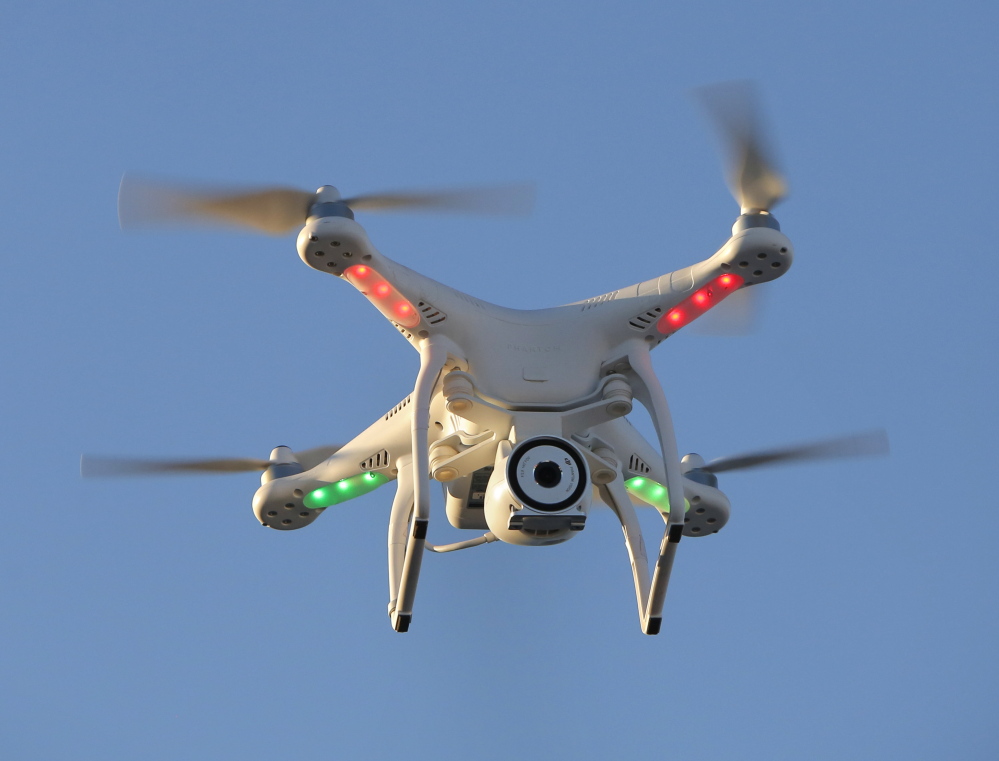Give the Federal Aviation Administration credit for initiative. Not only does the agency want to regulate the use of unmanned remote control aircraft (known as drones), it wants to regulate what people say about them, too.
Steve Girard of Gorham got a call from the FAA, warning him take down a website promoting aerial photography shot from a drone, a commercial use that is not permitted under the current interpretation of federal regulations. The FAA has reportedly told people to take down video posted on YouTube, because that qualified as a commercial use even though the poster was not paid for his work.
The right to fly these aircraft may be a matter of debate, but freedom of speech is not. It is protected by the First Amendment of the Constitution, and no government agency should be in the business of telling U.S. citizens what they can say on the Internet.
The FAA’s overreach here is even more remarkable when you consider what the agency is not doing in regard to civilian use of drones. As the technology of these flying objects gets steadily easier to use and afford, federal regulators still haven’t implemented rules that would lay out the conditions under which these devices could be used commercially.
The name “drone” conjures images of the pilotless military vehicles used to hunt down and kill “war on terror” targets half a world away. But that’s not what Girard and others are looking to operate here.
The civilian drones are small helicopters that can fly and hover, controlled remotely from the ground. They can be outfitted with video and still cameras, and potential commercial applications so far have included aerial photography and filmmaking.These drones are small — under 55 pounds, but in most cases much smaller than that. They are usually about the size of remote-controlled model aircraft used by hobbyists, and noncommercial drone use has fallen under the same very light regulations.
The problem arises for people who want to do more with drones than fly lazy circles in the sky. The FAA approves commercial drone use on a case-by-case basis, but most people who would like to make a business out of flying them are waiting for the rules to be written.
The FAA has legitimate interests here. It is charged with keeping air transportation safe, and the remote control drones should not be allowed to fly where they could interfere with manned planes and helicopters. There are also concerns regarding privacy, which would have to be addressed by other branches of government. In 2013, the Maine Legislature passed a bill governing the use of drones by police, which was vetoed by Gov. Paul LePage.
The FAA could address its issues, however, by issuing rules for commercial drone use. Requiring pilots to pass a test, register their aircraft and identify them with numbers (like commercial airplanes) are among the rules proposed by the FAA.
That seems like a better place to start than using government employees to intimidate people exploring the applications of this new technology.
“I’m all about following the rules,” Girard told a reporter. “Just give me something to follow.”
That sounds reasonable. The FAA ought to listen.
Send questions/comments to the editors.



Success. Please wait for the page to reload. If the page does not reload within 5 seconds, please refresh the page.
Enter your email and password to access comments.
Hi, to comment on stories you must . This profile is in addition to your subscription and website login.
Already have a commenting profile? .
Invalid username/password.
Please check your email to confirm and complete your registration.
Only subscribers are eligible to post comments. Please subscribe or login first for digital access. Here’s why.
Use the form below to reset your password. When you've submitted your account email, we will send an email with a reset code.